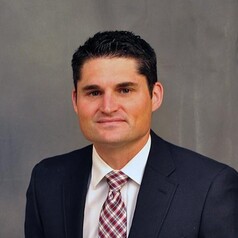
William Cornwell
My clinical interests include caring for individuals across the entire spectrum of disease, from professional athletes with cardiovascular-related issues, to patients with mild ambulatory heart failure, and those with end-stage, advanced heart failure requiring mechanical pumps (left ventricular assist devices, "LVADs") and heart transplants. I treat patients with a variety of types of cardiomyopathies, and patients suffering from heart failure with preserved ejection fraction. I have a strong interest in the athletic heart and provide care for all types of athletes, including professional athletes at all levels, tactical/occupational athletes (police, firefighters, paramedics, military) and recreational athletes. In addition, many individuals living in Colorado participate in a variety of sports in the mountains, and experience symptoms related to hypoxia (low oxygen) at higher altitudes. I work closely with Wilderness and Environmental Medicine, as well as the Altitude Research Center, to care for individuals who suffer from heart and lung-related symptoms related to altitude/environment. Finally, I also provide guidance/counseling to individuals on best practices for heart screening prior to participation in sports, whether it is pre-season assessments, or sedentary individuals with cardiac risk factors, who are interested in beginning an exercise program. I also serve as the director of cardiac rehabilitation at the University of Colorado Anschutz Medical Campus and facilitate referrals to our rehab center.
Get the world’s most fascinating discoveries delivered straight to your inbox.

